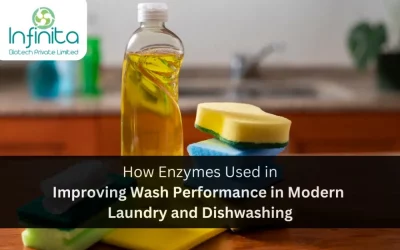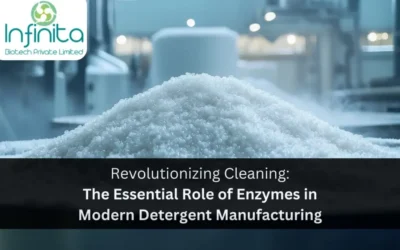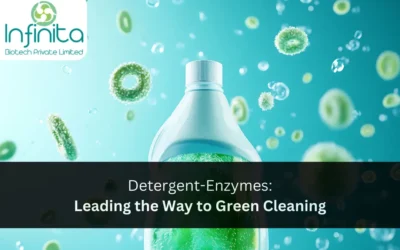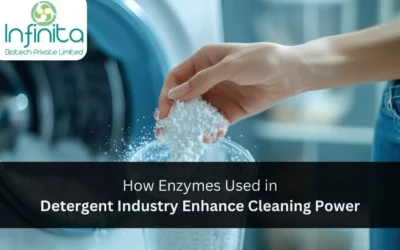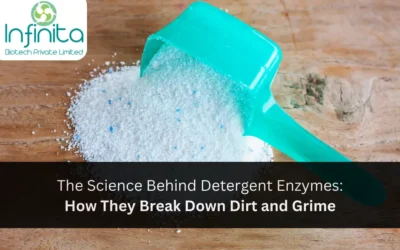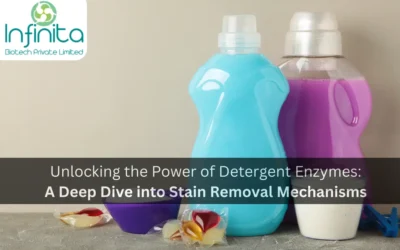As industrialization expands its wings, enzymes increasingly become crucial for detergent formulators to perform various tasks. They are used in laundry, automatic dishwashing, and cleaning mechanical equipment used in the food and beverage industry. Evolving marketing trends are accelerating the usage of enzymatic detergent.
Detergent With Enzymes – Cleaning Action
The list of ingredients used to make detergent varies significantly as per categories and geographical area, but their core purpose remains the same. Enzymatic detergents or detergents with enzymes include different enzymes, which are naturally occurring substances that accelerate the action of crumbling the stains or soil during a standard cleaning process. Disintegrated soil or strains turn into smaller molecules and can be easily cleaned. Different enzymes work with specific types of stains. The utilization of detergent with enzymes aids in removing tough stains or breaking down oil marks, stains of blood, red wine, or coffee. The best and most convenient way to use detergent with enzymes is by mixing them with water in the washing machine to treat fabrics, followed by the standard washing cycle.
Fill the tub halfway with water, enzymatic detergent, and stained garments, ensuring they are completely submerged. Allow the dirty laundry to soak for at least 30 minutes, if not overnight. Once the clothes have been thoroughly soaked, discard the solution and wash them as usual, following standard washing instructions.
Enzymes Used In the detergent Industry
Different enzymes have distinct properties based on which they are used to make detergents. The following are significant enzymes used in the detergent industry.
Protease
Protease is one of the most extensively used enzymes for industrial purposes. They are used in detergents explicitly made to remove stains caused by Proteins. Stains caused due to protein like milk, egg yolk, and egg, as well as ground meat and oatmeal, are some of the most challenging stains on dishes and cutlery. The protease has properties to overpower the protease inhibitors.
Amylase
The stains are cleaned physically by water jets during the automatic dishwashing. Though, some food leaves a thin layer of soil containing starch. If dishes are not cleaned properly, these films will accumulate over time. Amylase is used in detergents that are specially made to clean starch-containing soils on utensils. Such a detergent with enzymes can also eliminate bigger lumps of fumed or crusted soils.
Lipase
Fats and oils usually have strong hydrophobicity; removing them from garments is a complex and labor-intensive task. Lipase can hydrolyze triglyceride to diglyceride and make it more hydrophilic, and these hydrolysis products can easily dissolve in alkaline states During a standard washing process, you can observe the effect of lipase after washing cycles.
Cellulase
Cellulase is used in detergents that help cotton fabrics to revive and preserve their original colors, smoothness, and softness. Cellulase can split 𝛃-1 and glycosidic bonds in cellulose and act instantly on fabrics made using natural material, and help fabrics regain their natural shine. Cellulase removes the cotton fuzz and pills from the material that occurs due to rough washing or careless usage. Cellulase has a unique application in laundry to wash cotton fabrics.
Pectinase
This enzyme is known for its strong cleaning effects and is considered an effective alternative to bleach. It is widely used in detergents due to its properties to remove stains and marks caused due to fresh fruits like berries and tomatoes.
Final Words
Detergents with enzymes are used in numerous industries to clean up textiles, dishes, utensils, and mechanical equipment. If you are operating an industrial unit and need enzymes used in detergents or enzymes with strong and specific cleaning abilities, you can count on Infinita Biotech. We are India’s leading biotech company known for our broad range of enzymes engineered for various industrial purposes.
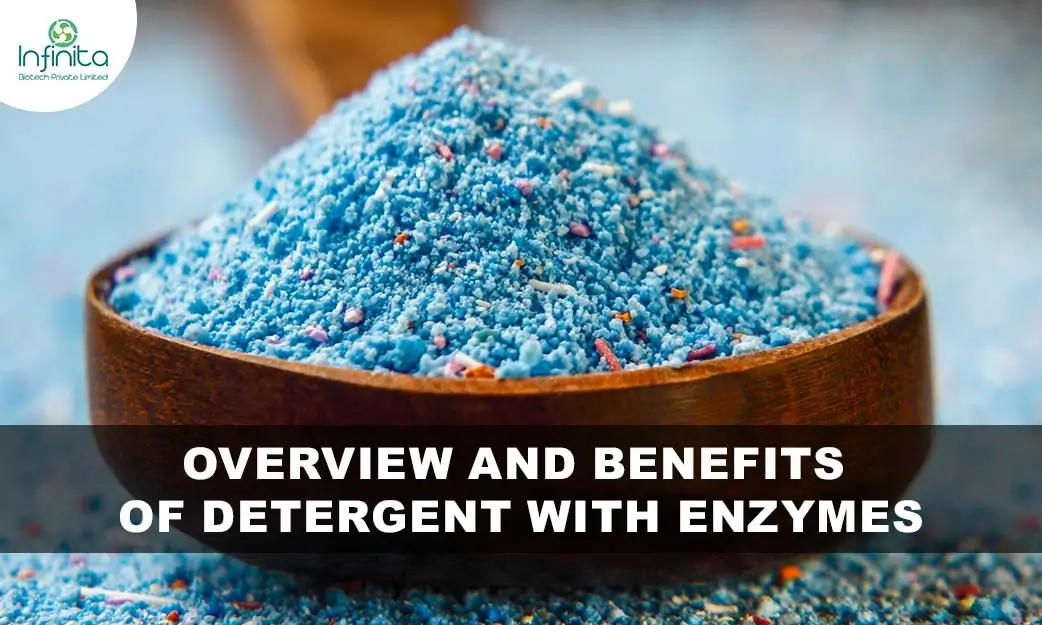
 Summarize this Article with AI
Summarize this Article with AI
